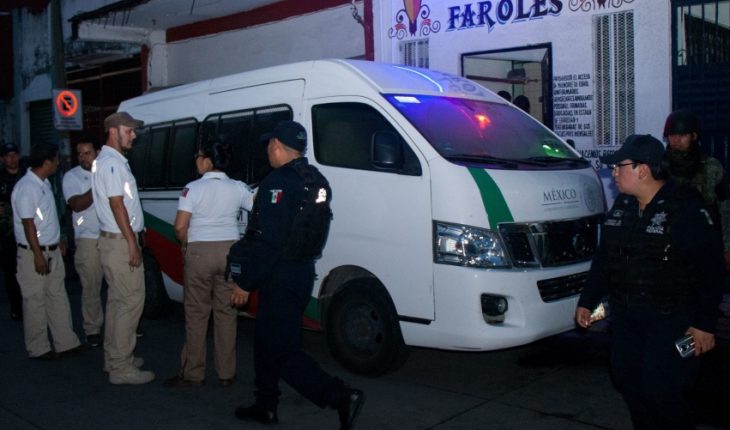The National Migration Institute (INM) announced on April 11 the rescue of 136 migrants who were in a safe house in Tlaxcala. According to the institution itself, a citizen complaint allowed the undocumented, including 19 unaccompanied minors, to be detected. He didn’t give any more details about what he did with them. Ten days have passed from the operation and many of these people are in an unknown whereabouts, according to various organizations defending the rights of migrants.
In a letter to which Animal Politics had access and addressed to the COMMISSIONER of the INM, Francisco Garduño, and other UN and IOM officials, the organizations denounce that the people who were announced as rescued were again in the hands of the coyotes that were transporting them.
“On April 12 of this year, the rescue in San Pablo del Monte, Tlaxcala, of a group of 138 migrants deprived of their freedom by a group of “coyotes” who mistreated and kept them incommunicado was unveiled in the media,” the letter says.
“It is the knowledge of the signatory organizations that, despite the intervention of the authorities, people who were part of that group are still in transit through Mexico under the control of the “coyotes”, under conditions that could jeopardize their physical and emotional integrity,” he continues.
For this reason, the organizations call on the INM to clarify the whereabouts of these people and guarantee them their safety and access to justice.
Signatories include the Foundation for Justice and the Democratic State of Law, the Pastoral Care of Human Mobility, the Committee of Relatives of Missing Migrants of El Progreso COFAMIPRO, Asylum Access, the Fray Matías Human Rights Center in Córdova or the Hostel Tochán-Our House.
Animal Politics consulted with the INM on this case, but at the close of the edition, it had received no response.
This report allows you to see a practice that the INM has been doing in recent weeks. He catches groups in northern areas, such as Tlaxcala and Tamaulipas, and sends them to Veracruz. As many are families with minors, who cannot be locked up in detention centres, officers quickly release them with an exit trade in which they are released from the country within 15 days. That is, they impose a kind of self-deportation with no practical effect, since migrants, who are in an irregular situation, can obey or resume the route north.
In the case of the 136, they were arrested in a house in Tlaxcala. Among them were also the chicks, the people who guide to the north. However, they were not arrested, but were transferred to Acayucan with the rest of the group. From there, as they could not be locked up, they moved to Oluta, a municipality located 3 kilometers away and where a hostel managed by the Catholic church is located.
Sources of this hostel explained that they receive people who arrive but generally only those who apply for asylum remain. The rest, rest and return to your country or return to the north. That’s what this group did, which was still under the control of the coyotes. So they left and are now in an unknown whereabouts.
What we do at Animal Politics requires professional journalists, teamwork, dialogue with readers and something very important: independence. You can help us keep going. Be part of the team.
Subscribe to Animal Politics, receive benefits and support free journalism.#YoSoyAnimal





